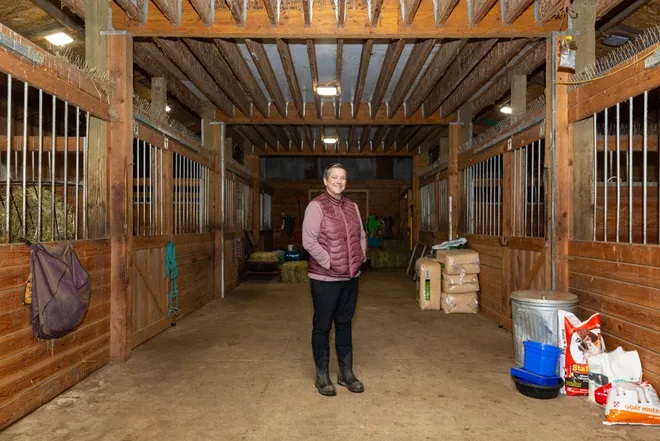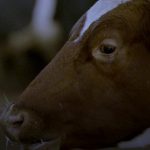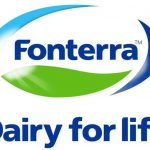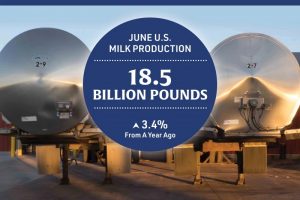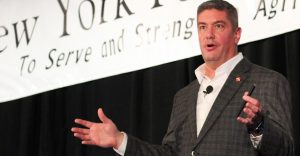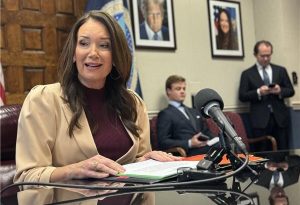
The Oregon Department of Agriculture has reversed a new policy requiring anyone who milks even one cow or goat to obtain a permit from the state.
The move comes two months after four small dairy farmers in Oregon filed a lawsuit in U.S. District Court asking a judge to stop ODA from enforcing the rule against small dairies.
The lawsuit will continue because the withdrawal is temporary, and ODA has not conceded that it lacked the power to enforce the new requirements, said attorney Bobbi Taylor, of the Institute for Justice, which is backing the lawsuit.
“At this point I think we are all happy with the reversal but the fight in court will continue, so we have assurances that the rules won’t be put back in place at a later date,” said plaintiff Waneva LaVelle, of Pure Grace Farm in Hubbard. “For me personally, with kidding season just finishing, I can now milk and run our small family farm as we have been for years.”
Farms with no more than two producing cows or nine producing goats or sheep are exempt from Oregon’s food safety and fluid milk license requirements.
Most of those farms previously didn’t need to comply with Oregon’s confined animal feeding operation, or CAFO, rules, because they don’t confine their animals.
Last year, ODA changed its definition of a CAFO, to include small dairy operations.
Even if animals spend most of their time outside, “all animals are technically confined during the milking process, whether in pens, lots or buildings,” ODA wrote in a January 2023 white paper on the issue.
ODA documents show the change came at the request of the Oregon dairy industry, which complained that small producers get an unfair financial advantage by not having to comply with the same rules as larger dairies.
“The government cannot crush small producers because its industry pals ask them to,” said Institute for Justice senior attorney Ari Bargil. “Economic protectionism is flatly unconstitutional, and our lawsuit will continue on until the courts acknowledge precisely that.”
The change meant small farmers would have to apply for a permit and renew it yearly, pay fees to the state, undergo regular ODA inspections, install wastewater drainage and holding systems, and keep meticulous records about how much manure their animals produce and where it ends up.
In the white paper, ODA argued the act of bringing animals indoors for milking, even if it’s only for a few minutes, means they meet the CAFO definition.
It also said that cleaning milking equipment or washing containers means farms operate CAFOs.
“CAFO permit registrations are important for three reasons,” the white paper reads. “First, to prevent water pollution. Second, to comply with the federal and state law. Third, to maintain a level playing field with all dairies holding Grade A fluid milk licenses that bear the costs of compliance with water quality regulations.”
The rule reinterpretation applies only to animals that are milked and not, for example, horses or cows and goats that are not milked.
ODA officials spent the past year trying to educate small dairies about the change, and were set to begin enforcing the rule on April 1.
Operating without a CAFO permit can bring fines of up to $2,500 for a first offense and up to $10,000 for repeat violations. The fines can be assessed daily.
“I’m glad that the lawsuit will continue so we can ensure that the government doesn’t tie us up in needless red tape in the future,” said plaintiff Sarah King, owner of Godspeed Hollow, a three-cow dairy in Newberg, Oregon. “It will never make sense to treat a tiny dairy like mine the same as a large dairy with hundreds of cows.”
Tracy Loew covers the environment at the Statesman Journal. Send comments, questions and tips:tloew@statesmanjournal.com or 503-399-6779. Follow her on Twitter at@Tracy_Loew
You can now read the most important #news on #eDairyNews #Whatsapp channels!!!
🇺🇸 eDairy News INGLÊS: https://whatsapp.com/channel/0029VaKsjzGDTkJyIN6hcP1K
